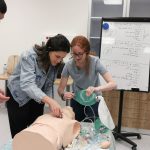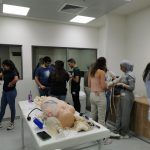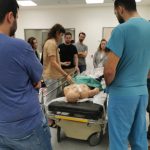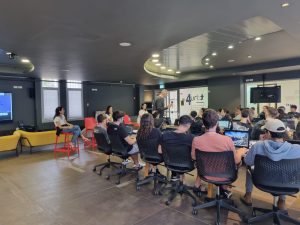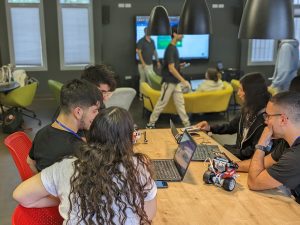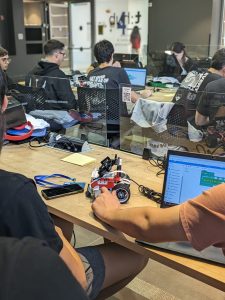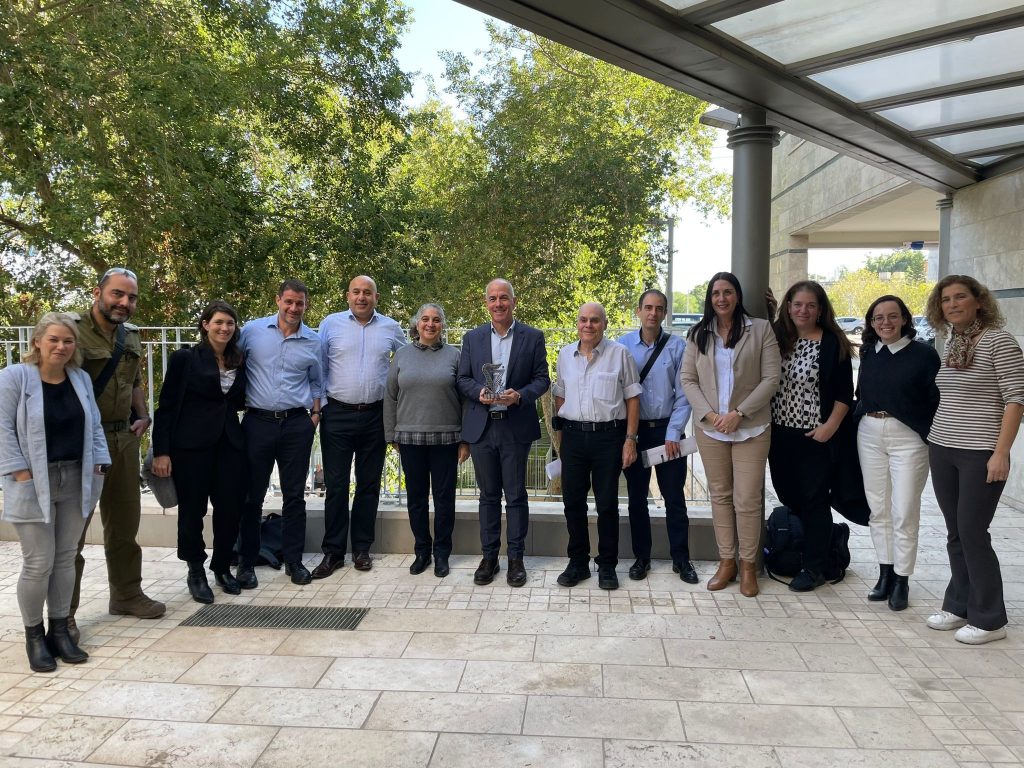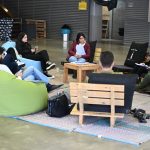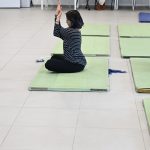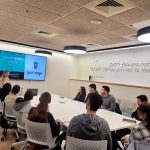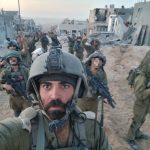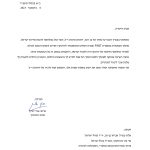January 2, 2024
To the Members of the Governing Boards
Harvard University
Massachusetts Institute of Technology
University of Pennsylvania
Dear Members of the Governing Board:
We are deeply concerned by the restrained reactions of the leaders of your institutions to
overtly antisemitic activities on your campuses. We were dismayed by the Congressional
testimonies of Presidents Gay, Kornbluth, and Magill, who refused to condemn calls for
genocide unconditionally.
Freedom of expression is unacceptable when it supports hate, genocide, rape,
mutilation, and kidnapping—as in the premeditated, unprovoked, unprecedented,
barbaric, and perverse terror attack by Hamas against citizens, children, and women in
Israel on October 7, 2023. This attack was part of a proclaimed effort by Hamas in
Gaza, Hezbollah in Lebanon, and Iran to annihilate Israel, which they deny the right to
exist, despite the fact that the State of Israel has continued to pursue peace with its
neighbors. For them, there are 56 Islamic states, but a single Jewish state is one too
many.
Expressing support for the deadliest attack against Jewish people since the Holocaust
is despicable and abhorrent. University leaders should condemn any expression of
support for such actions. Calls for murder should be deemed unacceptable and
penalized without any qualifications. Incitement to violence or hate speech based on
race, ethnicity, or religion is wrong, irrespective of “context.” Allowing these
provocations at your institutions is a moral failure that violates your codes of conduct,
may expose you to legal action, and significantly threatens academic performance.
Tolerating vehement demonstrations at your campuses in support of the worst crimes
against humanity undermines the fundamental purpose of your institutions of education
and research. Tolerating support for violence contravenes a critical element in a climate
necessary for learning and exploring: psychological safety [1, 2].
This concept, studied by prominent scholars—some from your own institutions [2-4]
is becoming increasingly recognized as a key factor for individual and team growth in many settings, including in
education organizations [1, 5, 6].
A sense of security is critical for academic performance, respectful debate, and trustful
collaboration—nurturing research and scientific progress. Fear in the workplace [2]
adversely impacts performance. An eminent scholar in quality improvement, Edwards
Deming, once advised, “Drive out fear of the organization so that everyone may work
effectively for the company.” Sooner or later, allowing fear on your campuses will
significantly compromise your academic excellence.
History teaches us that allowing antisemitism to grow can have severe consequences
for academic institutions. This was the case in 1938 at a prestigious medical school in
Vienna, from which it has yet to fully recover [7] (as discussed in an accompanying
editorial [8]).
“These events left the faculty, once home to numerous Nobel Laureates,
depleted of outstanding researchers and teachers—a situation that persisted for years
after the war.” If Jewish students and faculty feel unsafe at your campuses and opt to
leave, just as any other talented minority or individual would if they perceived threats to
themselves, your institutions will suffer a loss. Allowing hate to flourish gives rise to
profound apprehensions about the future caliber of your universities.
According to a recent Harvard-Harris poll, 51% of Americans aged 18 to 24 support
solving the Israel-Palestinian conflict by ending the Jewish state and handing it over to
Hamas. Interestingly, only 4% of Americans aged 65+ thought so, possibly because
they were raised on a Holocaust perspective of the right for Israel to exist, not on
biased, misleading messages in social media. Higher education has an important
mission to correct blatant ignorance of the past.
Besides unequivocal condemnation and disciplinary action in response to antisemitic
provocations, we suggest organizing educational activities, seminars, invited lectures,
courses, and workshops about psychological safety and listening to the Other across all
departments and facilities [9-12], as well as discussing the moral lessons of the
Holocaust [13-16].
The evidence is that listening reduces extremism, develops humility,
and promotes psychological safety [9-12]. A central message from the history of the
Holocaust to teach in higher education is to prevent crimes against humanity and
genocide, with the hope of one day achieving a world free of terrorism, antisemitism,
racism, and all forms of discrimination [13-16].
Leading universities, such as yours, should set an example by disseminating these
important messages.
Thank you for your consideration.
Sincerely,
This letter is signed by Nobel laureates whose names appear below.
Professor Aaron Ciechanover, Nobel Laureate in Chemistry, 2004
Professor Avram Hershko, Nobel Laureate in Chemistry, 2004
Professor Daniel Kahneman, Nobel Laureate in Economics, 2002
Professor Roger D. Kornberg, Nobel Laureate in Chemistry, 2006
Professor Michael Levitt, Nobel Laureate in Chemistry, 2012
Professor Dan Shechtman, Nobel Laureate in Chemistry, 2011
Professor Ada Yonat, Nobel Laureate in Chemistry, 2009
References
1. Edmondson AC, Higgins M, Singer S and Weiner J. Understanding psychological safety in
health care and education organizations: a comparative perspective. Research in Human Development.
2016; 13: 65-83.
2. Edmondson AC and Lei Z. Psychological safety: The history, renaissance, and future of an
interpersonal construct. Annual Review of Organizational Psychology and Organizational Behavior.
2014; 1: 23-43. [Harvard]
3. Schein EH. Kurt Lewin’s change theory in the field and in the classroom: Notes toward a model
of managed learning. Systems Practice. 1996; 9: 27-47. [MIT]
4. Schulte M, Cohen NA and Klein KJ. The coevolution of network ties and perceptions of team
psychological safety. Organization Science. 2012; 23: 564-81. [Wharton, U Penn]
5. Lateef F. Maximizing learning and creativity: understanding psychological safety in simulation-based learning. Journal of Emergencies, Trauma, and Shock. 2020; 13: 5.
6. Mustafa MB, Rani NHM, Bistaman MN, et al. The relationship between psychological well-being
and university students academic achievement. The International Journal of Academic Research in
Business and Social Sciences. 2020; 10.
7. Ernst E. A leading medical school seriously damaged: Vienna 1938. Annals of Internal Medicine.
1995; 122: 789-92.
8. Lerner BH and Rothman DJ. Medicine and the Holocaust: learning more of the lessons. Annals
of Internal Medicine. 1995; 122: 793-4.
9. Itzchakov G, Kluger AN and Castro DR. I am aware of my inconsistencies but can tolerate them:
The effect of high quality listening on speakers’ attitude ambivalence. Personality and Social Psychology
Bulletin. 2017; 43: 105-20.
10. Itzchakov G, Weinstein N, Leary M, Saluk D and Amar M. Listening to understand: The role of
high-quality listening on speakers’ attitude depolarization during disagreements. Journal of Personality
and Social Psychology. 2023.
11. Kluger AN and Itzchakov G. The power of listening at work. Annual Review of Organizational
Psychology and Organizational Behavior. 2022; 9: 121-46.
12. Lehmann M, Kluger AN and Van Tongeren DR. Am I arrogant? Listen to me and we will both
become more humble. The Journal of Positive Psychology. 2023; 18: 350-62.
13. Chelouche T, Czech H, Fox MA, et al. Statement on the Lancet Commission on Medicine,
Nazism, and the Holocaust. The Lancet. 2023; 402: 1816-7.
14. Czech H, Hildebrandt S, Reis SP, et al. The Lancet Commission on medicine, Nazism, and the
Holocaust: historical evidence, implications for today, teaching for tomorrow. The Lancet. 2023; 402:
1867-940.
15. Horton R. Offline: Universal lessons for humanity. The Lancet. 2023; 402: 1818.
16. Levany S, Arsyaf MA, Roma CB, et al. Why health-care learners and professionals should want
to learn about medicine, Nazism, and the Holocaust. The Lancet. 2023; 402: 1814-6.
ACCESS THE PDF OF THE LETTER HERE:
Nobel Laureates Write To Members of Governing Boards.




